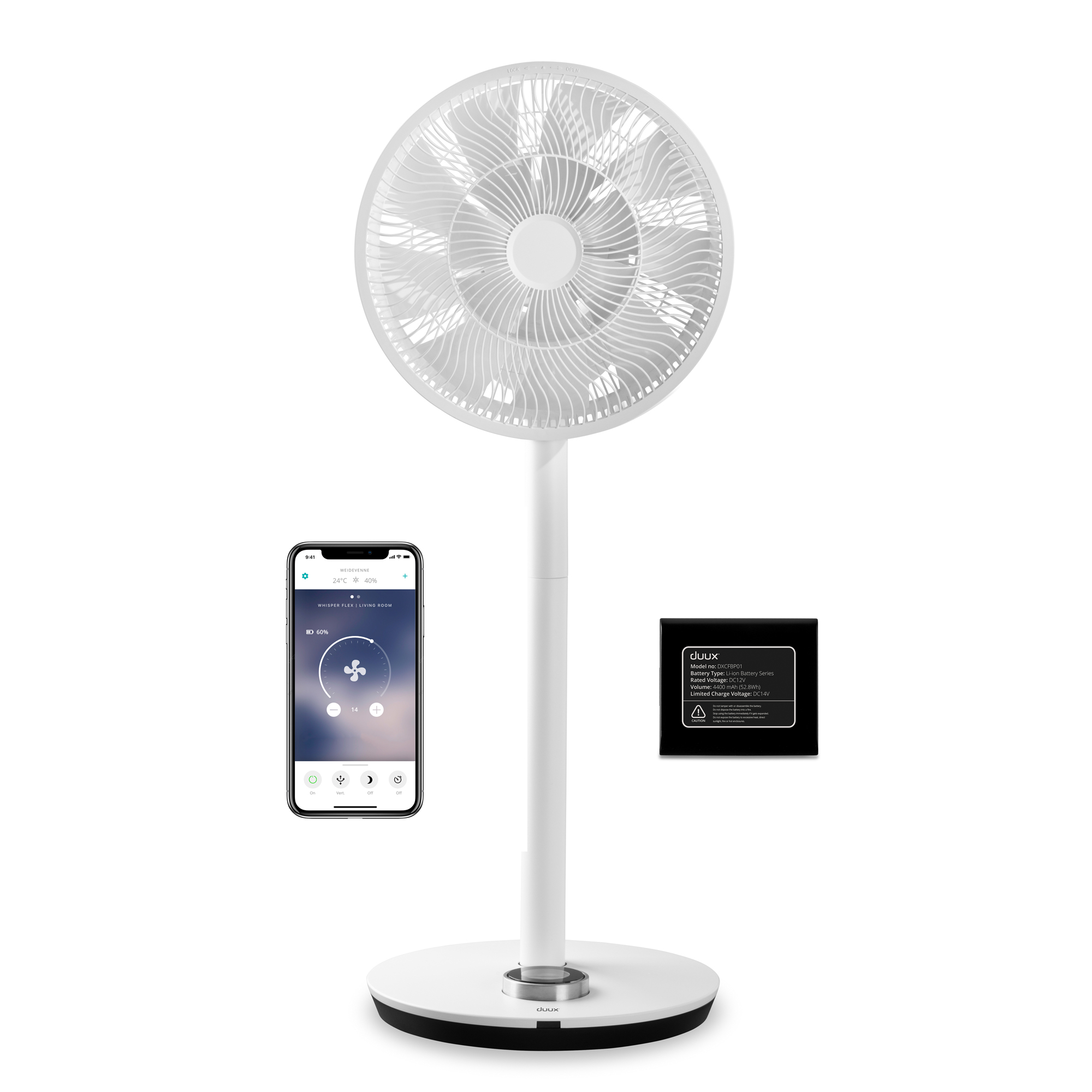How to choose between a tower fan or pedestal fan – this how to know which is the right choice for cooling for your home
Which is the better option to stay cool at home this summer?

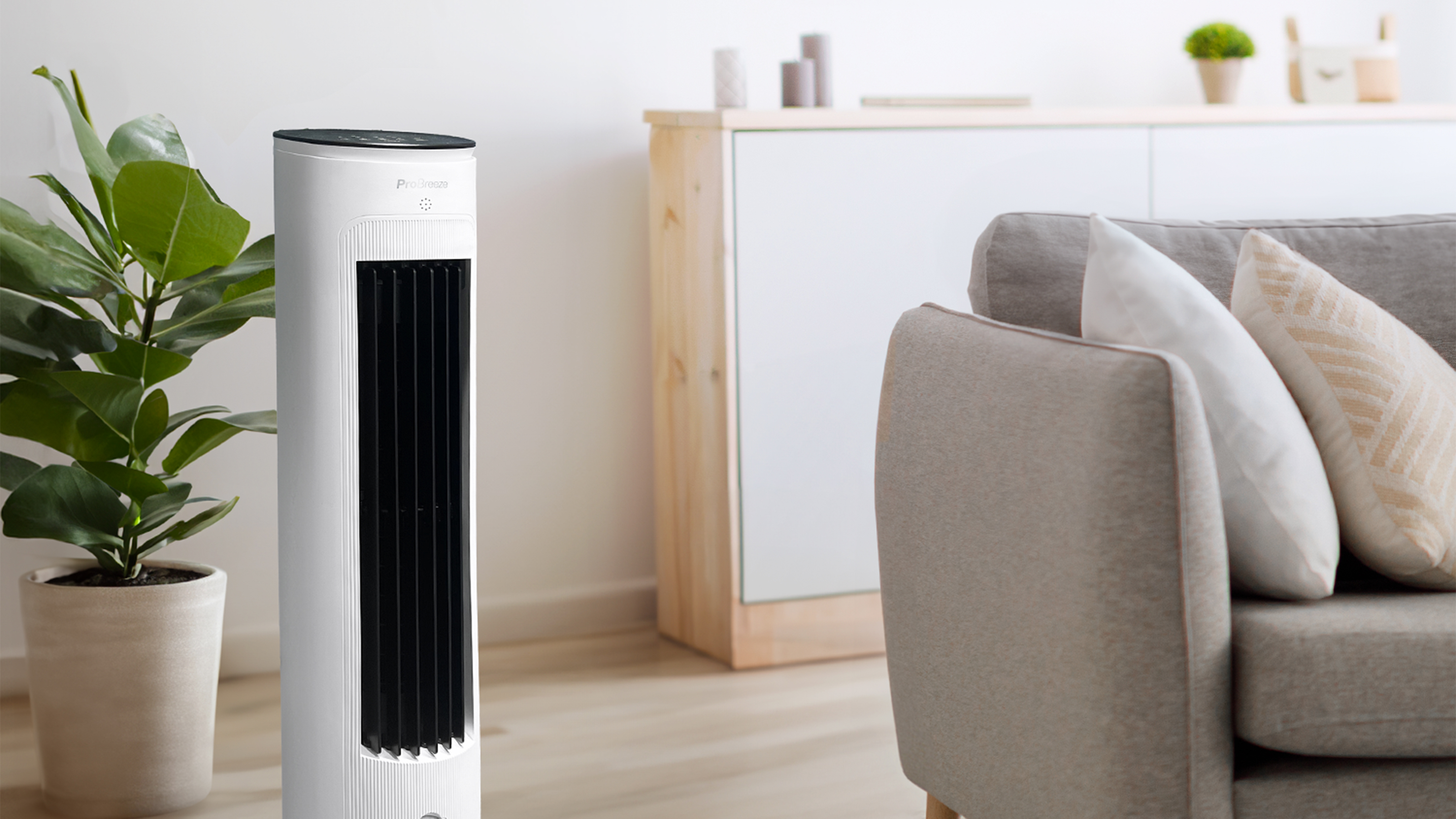
Sign up to our newsletter for style inspiration, real homes, project and garden advice and shopping know-how
You are now subscribed
Your newsletter sign-up was successful
Summer is officially here and if you don't fancy putting it with the stifling heat that often comes with the British summertime, investing in a fan is a smart choice to make. But, with the choice of either a tower fan vs pedestal fan, which one is the better choice?
When it comes to purchasing the best fan for your home, there are many different types to choose from to fit your household's specific needs. Despite the best desk fans rising in popularity for their size and portability, it's undeniable that the top two contenders for keeping a bedroom cool are still tower and pedestal fans, often being pit against one another as the ideal home cooling device.
Below, we explain the pros and cons of both fan types and how to decide which will be the best investment for your home.
Tower fan vs pedestal fan
Both tower fans and pedestal fans are effective appliances for helping to make a room feel more comfortable and cooler during hot weather.
While fans as a whole don't exactly lower a room's temperature as the best portable air conditioner do – a concept we've covered extensively when discussing fans vs air conditioners as the best cooling device – by increasing the air circulation indoors, it can help make a room feel more comfortable because of the breeze provided.
'When you are choosing a fan, you likely want something that circulates the air well, operates quietly so it doesn't disturb you, and looks stylish and well designed for your home,' says Chris Michael, managing director at Meaco. 'The biggest differences are in size and whether the fan is for a surface or stands on its own pedestal.'
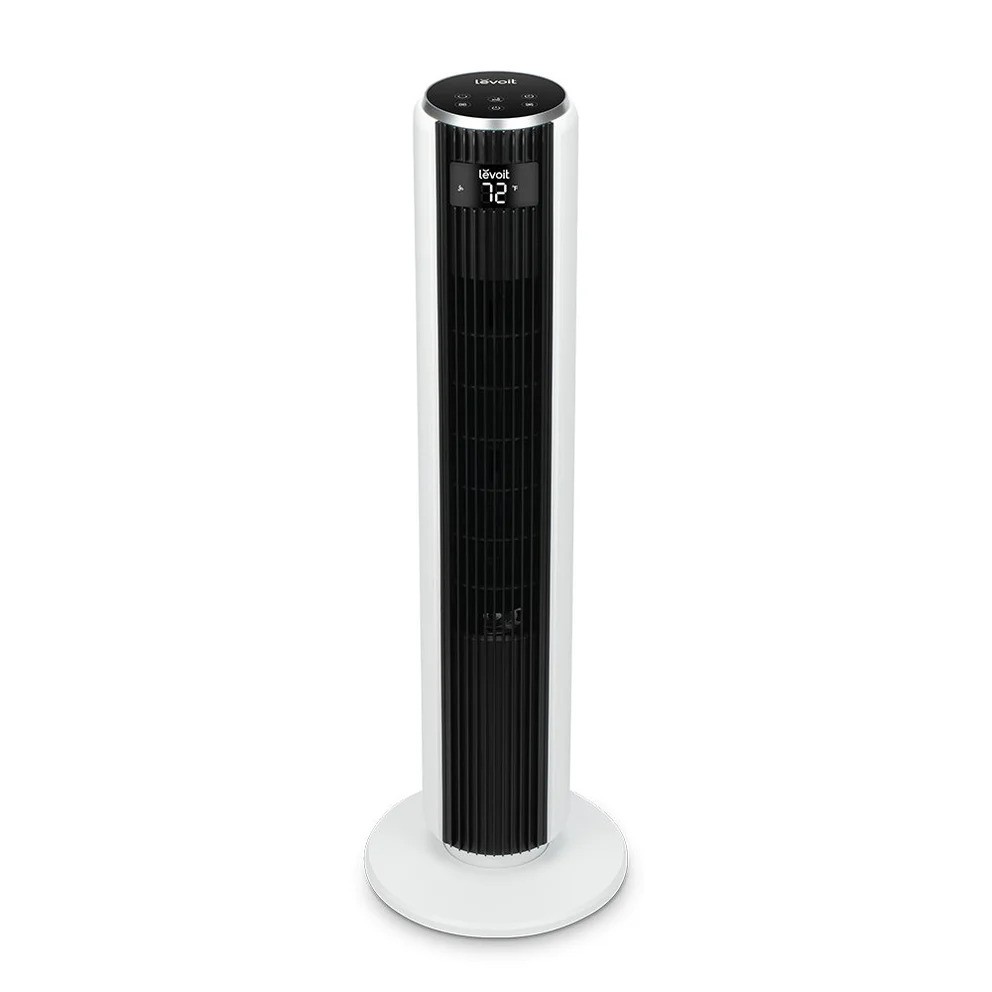
The pros and cons of a tower fan
The biggest advantage that tower fans have is its tall and slim build, making them the ideal cooling addition to a small bedroom or for keeping a kitchen cool, irrespective of how tiny a cooking space you've got.
Sign up to our newsletter for style inspiration, real homes, project and garden advice and shopping know-how
'Tower fans are a great option for smaller settings, combining functionality with ease,' says Jemma Pendlebury, product manager at Russell Hobbs. Their often modern and sleek designs allow them to fit seamlessly into any room.
'They can direct the flow of air upwards or downwards and compared to pedestal fans, these fans usually have more features,' notes David Miloshev, appliance and HVAC expert at Fantastic Services. These features often include being fully remote controllable, where you can select multiple speeds, modes, and are usually quieter than their pedestal counterparts.
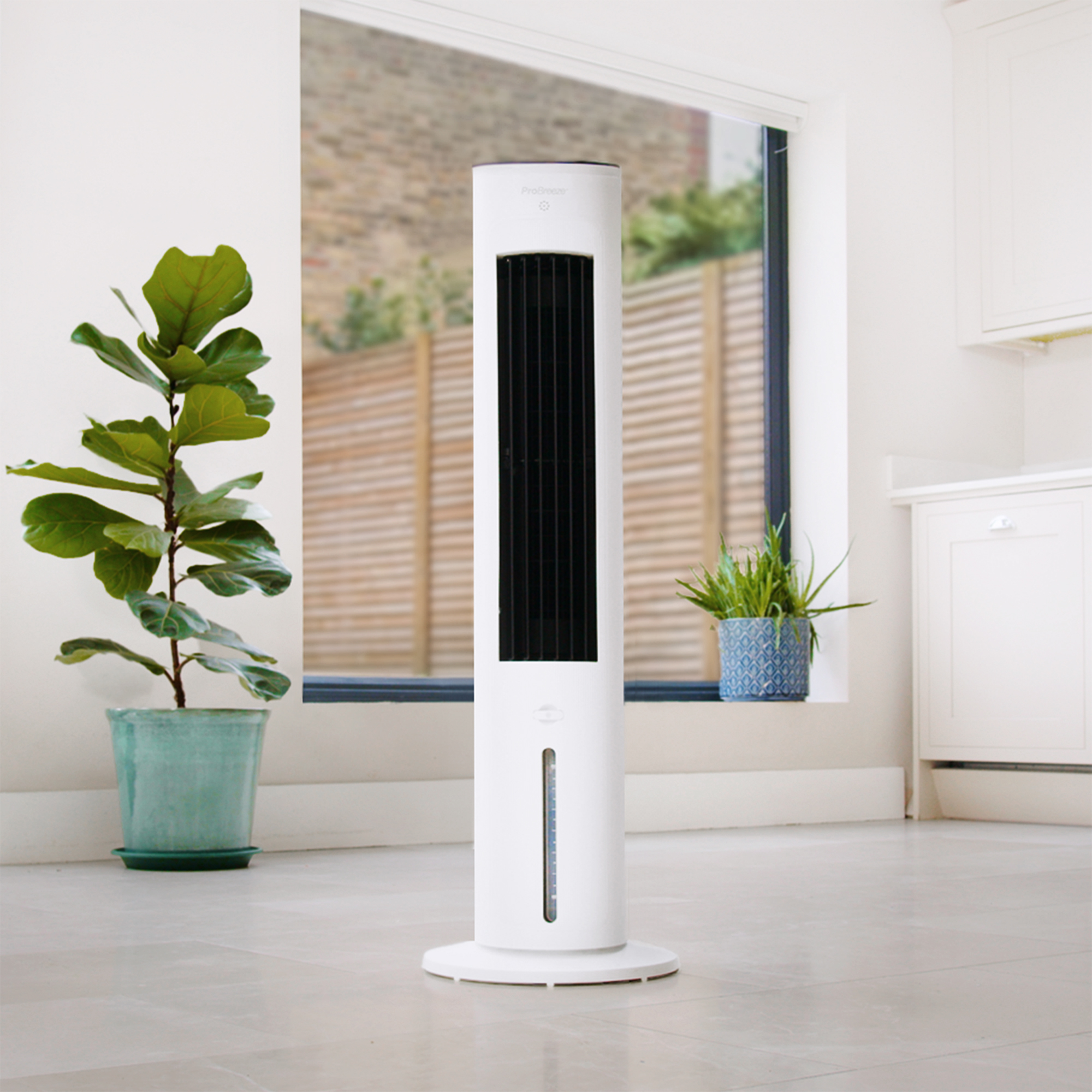
However, it is worth noting that tower fans do lack in stability factor when compared to pedestal fans. 'Tower fans can be less sturdy, which can mean they are unsuitable if young children are in the vicinity,' cautions Chris.
In the case of child-proofing your home without sacrificing the ability to stay cool, bladeless fans (like the fan-favourite Dyson fans, for example) are often considered the safer option around vulnerable occupants and make the task of cleaning a fan far easier, too.
Additionally, it's important to consider that the upfront cost of buying a tower fan will often be higher than that of a pedestal fan because of the extra features they provide.
The pros and cons of a pedestal fan
Pedestal fans are the classic fan design that is definitely no stranger to us, described by Jemma as having the 'traditional element, constructed of a round fan head encased in a basket guard, using fast-moving blades to generate cool air.' As such, they tend to be more the powerful option for cooling down a room.
'Unlike tower fans, pedestal fans are taller and have a wide base, making them more stable. Additionally, they are usually less expensive than tower fans,' notes David.
Not only that, but David further adds that the airflow from pedestal fans is wider, allowing it to cover greater areas because of their oscillating motions.
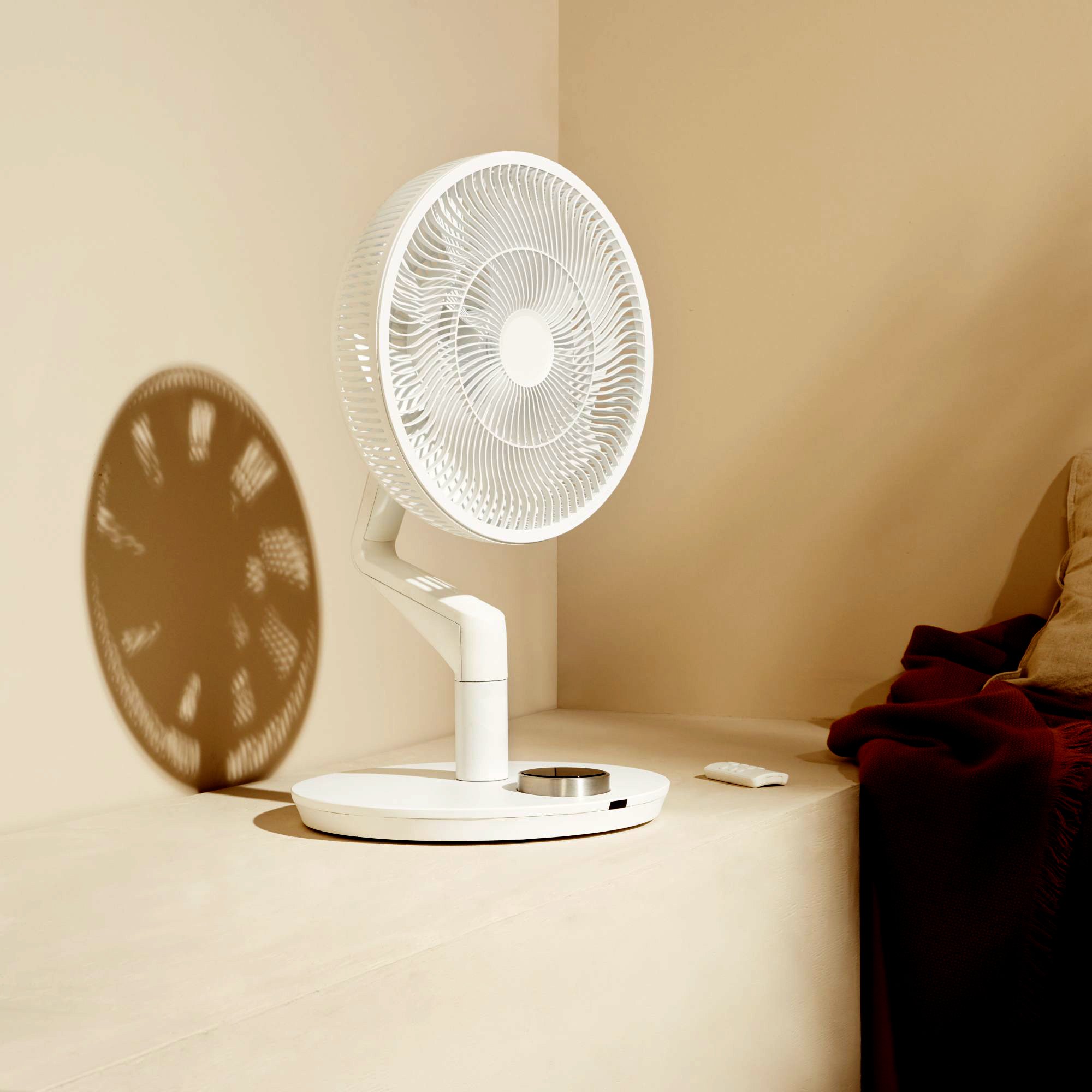
However, because of the advantages they hold in being bigger and more powerful, pedestal fans may also not be as suitable for smaller areas because they take up a bit more space and are not as quiet as tower fans.
From a design aspect alone as well, some people may find traditional pedestal fans a little 'dated' in their appearance, which could take away from the look of a curated modern living room idea, for example. But of course, if keeping cool is your main priority during a heatwave, then we're sure appearances are a menial concern in the grand scheme of things.
Tower fan vs pedestal fan: which one is right for you?
'When selecting a fan, it is important to consider what size would be best for your needs and which functions are going to be the most appropriate for your requirements,' begins Chris.
Although we've explained that tower fans often come with extra functions and modern advancements, this isn't to say that pedestal fans aren't coming up with their own version of modern innovations, too. In fact, this is something we've seen done successfully in our top-rated fan, the MeacoFan 1056 Air Circulator Fan and the Duux Whisper Flex Ultimate Fan – both of which have received an impressive 4.5 star rating from us, in all their traditional pedestal fan glory.
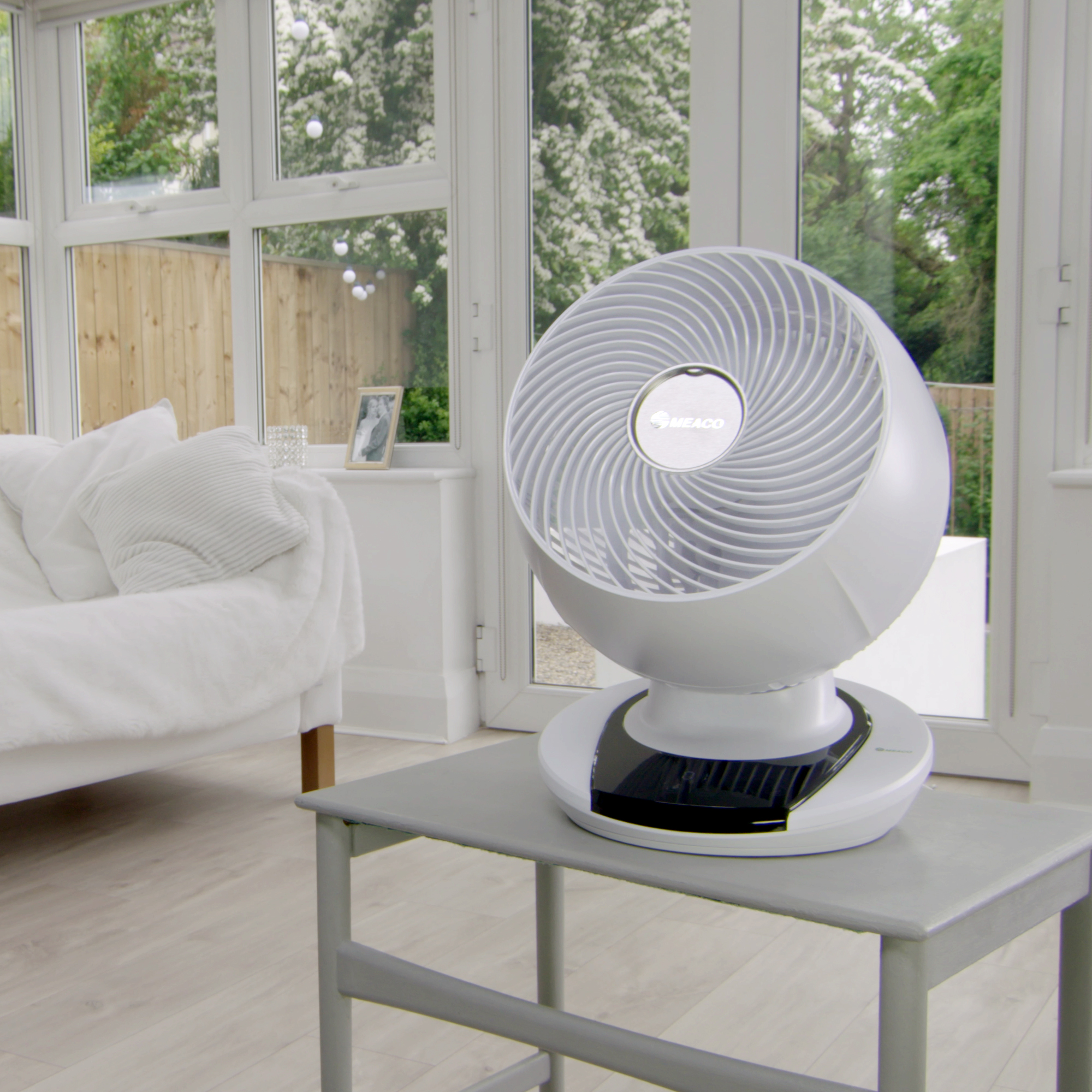
Another thing to look for when differentiating fans is any extra functions they provide, including multiple speeds to choose from, a remote control for ease of use, and even unique modes for specific circumstances.
'Several brands may also offer a temperature related modes that adjusts the fan speed automatically as the room temperature changes, or a night mode which reduce the fan speed during the night. This stops you from waking up feeling cold, as body temperature typically drops when sleeping,' explains Chris.
All of these features and functions are things that can be found in both tower fans and pedestal fans, so the choice you make at the end of the day will come down to personal preference.
Tower fan vs pedestal fan: the verdict
As we mentioned above, since additional features can be found in both tower fans and pedestal fans, the choice you ultimately make as the investment for cooling your home will boil down to the other factors we have outlined above – including the size of the room and space available, whether you've got children, and upfront costs.
If you've got a smaller home and live alone or with a partner, or perhaps even just require a compact cooling device for a home office to combat a stuffy WFH day, a tower fan could be the right choice for you.
However, if you're looking to cover more ground and a model that will give off more power from the get-go, without the concern of children running around, a pedestal fan might just be the ideal choice.
Whichever of the two you select, whether it's a tower fan or a pedestal fan, you can rest assured that both are great options for keeping cool at home this summer.

Jullia was Ideal Home’s Junior Writer from 2022-2024 and the Ideal Home Certified Expert in Training on Vacuums having spent over 60 hours testing different models. She’s always loved all things homes and interiors, graduating with a bachelor’s degree in Architectural Studies from the University of Nottingham where her love for writing blossomed following her internship at ArchDaily. Now focused on home tech and cleaning, Jullia works on writing features and explainers to help people make the most of their home appliance investments, putting the newest launches through their paces. When she isn’t writing, she loves exploring the city, coffee shop hopping, and losing hours to a cosy game or book.
